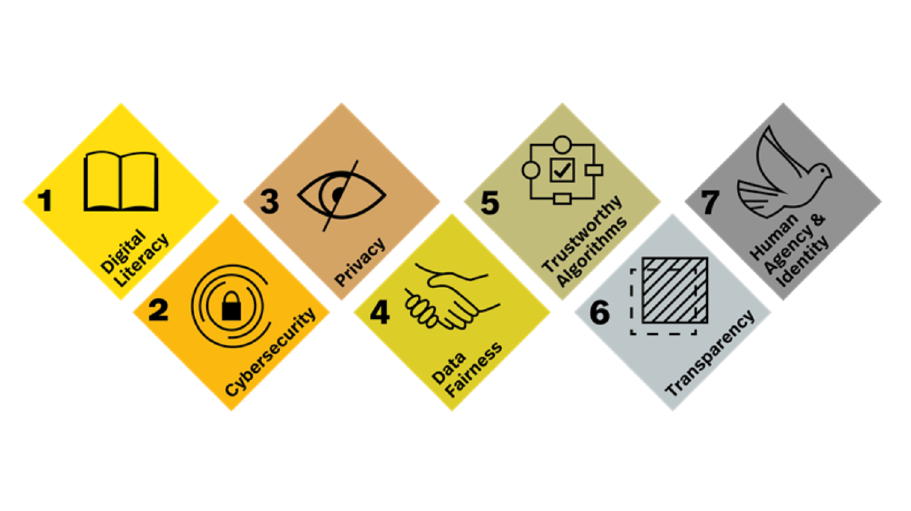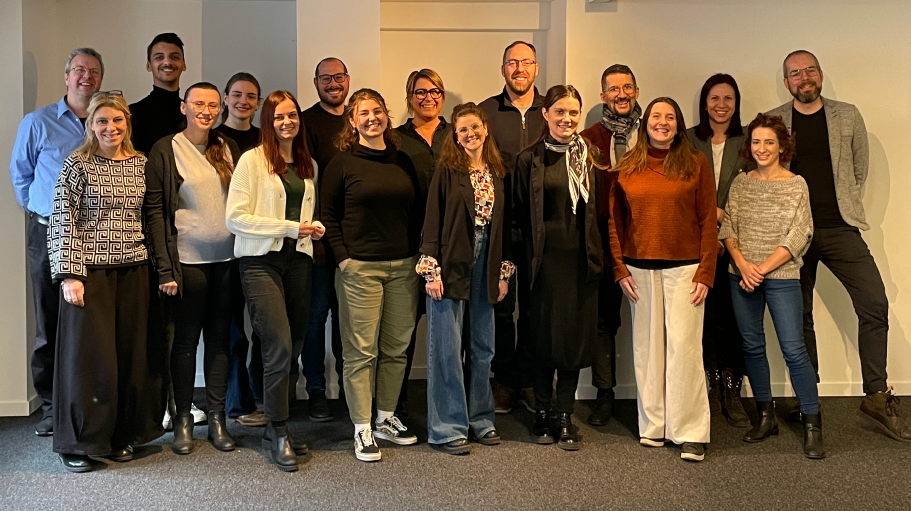Data rights & digital responsibility for the food sector: DRG4Food project promotes new tools on Consumer Rights Day
Last Updated : 14 March 2023Brussels, 15th March 2023
As rapid digital advancements continue to shape the world we live in, market abuses and social injustices pose a significant threat to consumer rights, both in the physical and virtual worlds. Particularly in sensitive systems like the food chain, data-based approaches are important but not easy to implement due to the sheer mass of stakeholders and diversity of interests.
In response, initiatives that establish trust in a data-driven food system have become increasingly critical. On the occasion of Consumer Rights Day, the DRG4FOOD project celebrates the digital rights that consumers have, their potential to improve the trustworthiness of the food chain and how they affect the food industry. The project, which began in December 2022, aims to create a data-driven food system that inspires trust throughout the food chain.
For the DRG4FOOD consortium, a diverse and human-centric perspective is key to creating a sustainable ecosystem that is ‘trustworthy by default’. To truly design for trust, the entire chain of activities and underlying assumptions towards developing technology has to be based on fundamental values like responsibility, privacy and user control, especially when dealing with valuable and sensitive food data.
One important tool to implement data rights in the food chain is the Digital Responsibility Goals (DRGs). Similar to the UN Sustainability Goals, DRG4FOOD’s partner Identity Valley developed the Digital Responsibility Goals to promote digital technologies grounded on democratic rights and values. The goals propose concrete measures for seven key focus areas that have the potential to shape the digital economy in a way that is both ethical and human-centred.

Image 1 – Digital Responsibility Goals (DRGs)
"As a consortium, we believe that technology is not an end in itself but acts as an empowering enabler," said Kai Hermsen, coordinator of the DRG4FOOD project. "The practical implementation of digital responsible tools can enable new levels of innovation in many areas of the food sector, such as food safety, sustainability, reduction of food waste and fair conditions throughout the entire food chain."
In the next three years, DRG4FOOD will test use cases (i.e., concrete scenarios on how data might be used) in the areas of personalised nutrition and food traceability. How? DRG4FOOD will launch two open calls for funding in September 2023 and Spring 2024 for a total of €1.9 million. The funding will be available to research groups, start-ups, SMEs and innovators who are interested in implementing dedicated tools and applications regarding the Digital Responsibility Goals while receiving training and support to scale them up. The project will also work closely with FOODITY, another project that is running in parallel, to launch open calls for funding other possible data applications in the food sector. This process will allow broader audiences to gain access to data-based applications and use them for further developments throughout the food chain.
DRG4FOOD is an essential step towards creating a sustainable and trustworthy digital food system that benefits both the industry and consumers.
"The starting point of all assumptions needs to be the user and their values, not a business model or (legitimate) state interests," Kai Hermsen reminds us.

Image 2 – DRG4FOOD kick-off meeting. Brussels, 18-19th January 2023.
ENDS
Resources
- DRG4FOOD website: www.drg4food.eu
- Consumer rights day: https://www.consumersinternational.org/what-we-do/world-consumer-rights-day/
- Digital rights: https://www.consumersinternational.org/what-we-do/digital-rights/
- DRG4FOOD on Cordis: https://cordis.europa.eu/project/id/101086523
- DRGs: https://identityvalley.org/drg
About DGR4FOOD
The project will enable new levels of innovation for example in food safety, sustainability, personalised nutrition, reduction of food waste and fair conditions throughout the entire food chain. The programme works on a clear strategic roadmap (a new virtual food system), a set of technological enablers, a demonstration of solutions, a structured funding programme with open calls, and measures to guide and support the food ecosystem of third-party beneficiaries, citizens and stakeholders.
Contacts
Marie-Christine Thurm, Media relations, EUFIC, marie-christine.thurm@eufic.org
